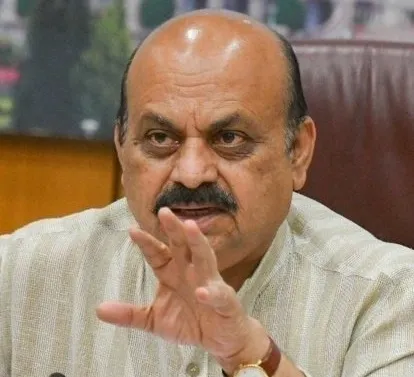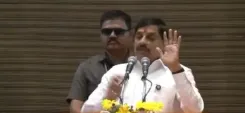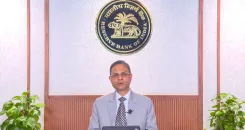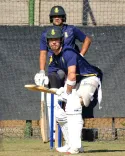Did the Karnataka HC Dismiss Hate Speech Cases Against Ex-CM Basavaraj Bommai?

Synopsis
Key Takeaways
- The Karnataka High Court dismissed two hate speech cases against Basavaraj Bommai.
- The court found the complaints to be vague and lacking evidence.
- This ruling is significant for the discourse on freedom of speech in Indian politics.
Bengaluru, June 27 (NationPress) The Karnataka High Court has officially dismissed two hate speech cases against former Chief Minister and BJP MP Basavaraj Bommai. He was accused of fostering hostility between different groups by claiming that Waqf authorities were unlawfully seizing land.
A judicial bench led by Justice S.R. Krishna Kumar issued this ruling after evaluating the quash petitions submitted by Bommai, thus nullifying the charges against him.
Bommai contended that the criminal complaints lodged against him were baseless and driven by malice. He was represented by senior lawyer Prabhuling Navadgi.
The controversial remarks from Bommai were made during a BJP protest rally in November 2024, where he criticized the Congress-led Karnataka government for allegedly permitting the Waqf Board to encroach upon farmers' and temple properties.
During this rally, Bommai stated, “wherever a stone is thrown in Savanur town, it is Waqf land.” He faced charges under Section 196(1)(A) of the Bharatiya Nyaya Sanhita (BNS) for inciting enmity between groups.
The court pointed out that the complaint was ambiguous and lacked substantive claims. Citing precedents from the Supreme Court and the High Court, the bench concluded that continuing with the proceedings would constitute an abuse of the legal system. Thus, the cases were quashed.
However, the bench clarified that this ruling only pertains to Bommai, excluding other accused individuals.
Three distinct complaints were filed in November 2024 against former Chief Minister Bommai, BJP leaders C.T. Ravi and former BJP MP Pratap Simha, as well as a notable religious leader, in connection with accusations of inflammatory speeches that heightened religious discord.
Two FIRs were lodged at the Shiggaon police station in Haveri district against Bommai, Pratap Simha, and Ravi, related to a BJP protest conducted on November 4, 2024. During this event, which was a response to the Waqf land controversy, the leaders accused the state government and Waqf of infringing on farmers’ lands.
Home Minister G. Parameshwara subsequently declared legal action against BJP leaders and religious figures.
In retaliation, the state BJP asserted, “The state government has initiated false cases against BJP and its supporters merely to suppress them. They will not succeed in their endeavors. We will contest all unfounded accusations in court. The Karnataka High Court has already dismissed numerous FIRs filed against BJP leaders.”





